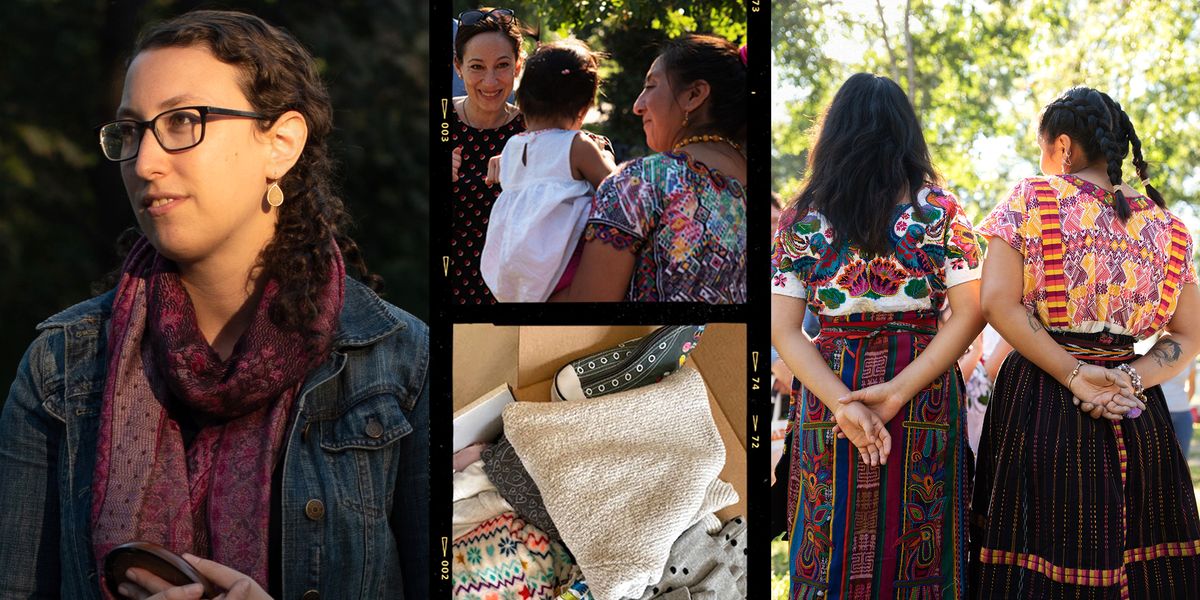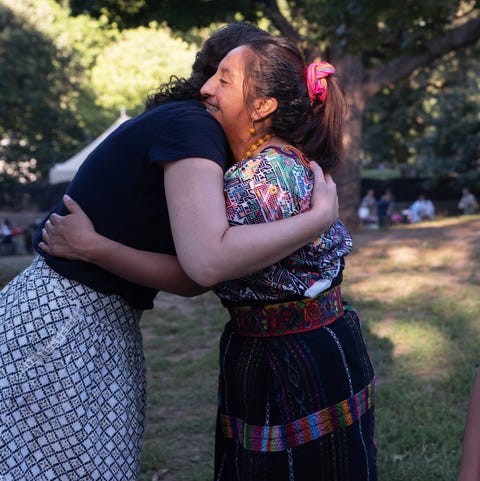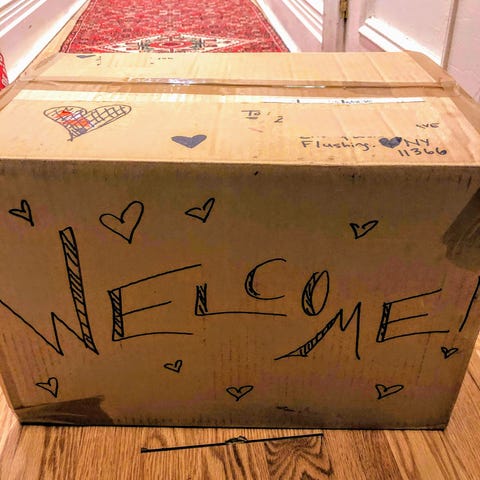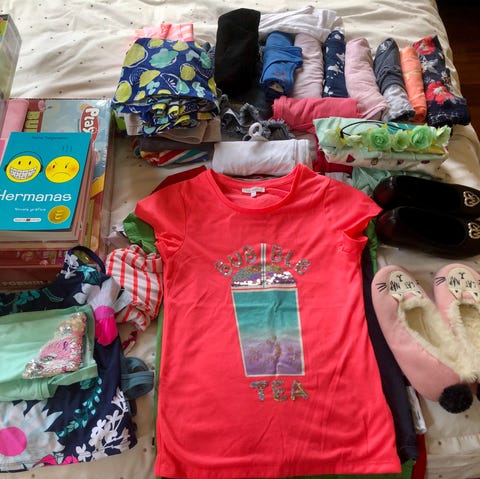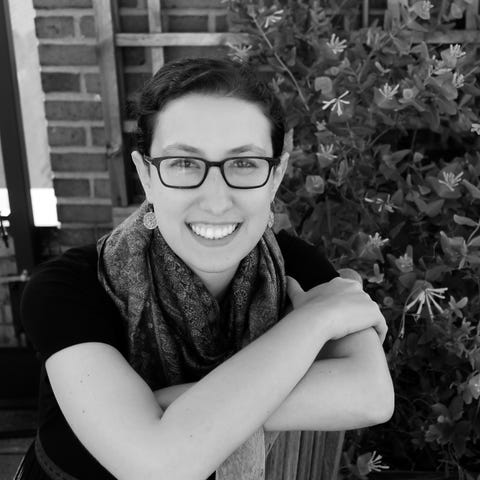While attending grad school in New York City, Shoshana Akabas tutored a recently arrived Afghan refugee in English. The woman was pregnant and had a very small support system in the U.S., so Akabas asked a friend of hers who had recently given birth whether she had baby clothes to pass along. Akabas’ friend had an overflow of onesies—many of them unworn, because babies grow so fast—that she was happy to give away. Six months later, Akabas’ friend asked whether she could donate more clothes to the same Afghan mom.
“That was when the idea hit me,” Akabas, 29, tells ELLE.com. “This is a much more efficient, sustainable, and dignified way of getting clothes to folks who need them.”
Akabas began connecting other refugee families in New York with her friends who had children. Word spread and soon there was a rapidly growing waitlist of parents who also wanted to share their kids’ clothing. “So many clothes end up in landfills within a year of being manufactured,” Akabas says. “This made it really easy for parents to give their kids’ clothes a second life, and to know that the items were going somewhere meaningful.” By 2018, the community initiative had turned into New Neighbors Partnership, an official nonprofit that normalizes the idea of sharing among community members—and helps local and refugee families build relationships that go beyond hand-me-down baby clothes.
“We take what would otherwise be a one-time blind donation and turn it into a longstanding community connection between people who might not have otherwise crossed paths,” Akabas says. “It’s a much more personal and direct network for sharing clothing.”
New Neighbors Partnership carefully matches newly arrived refugee families with local New York City families who must commit to passing along clothes for at least three years. Akabas say this efficient model of giving has lots of benefits, including the quality of the clothing. “If I’m donating to a drive, I’m much more likely to just throw everything into the bin, knowing someone on the other end will sort it out, but if I’m sharing with a family I know, I’d make sure all the buttons are sewn, the stains are removed,” she says.
It also provides comfort and longer-term security to refugee families. “They know they will have clothes for their kids for seasons to come,” Akabas says, “as well as the connection to a local family with similar aged kids.”
In the three years since New Neighbors Partnership started, the organization has served more than 300 refugee children from 33 countries, including China, Syria, and South Sudan. About a third of the refugees are special immigrant visa recipients from Afghanistan who assisted the U.S. government and were forced to flee. In August, New Neighbors Partnership worked to facilitate the evacuation of a family stuck in Kabul after the Taliban seized Afghanistan. It took six weeks, but the mother and her daughters are now safely living in New York. “We’ve been welcoming Afghan families for a few years, but there’s definitely been an influx in the past few months,” Akabas says. “We worked with one mother who arrived 9 months pregnant, moved into her new home in Queens on a Monday and went into Labor on Tuesday, and by Wednesday, we’d matched them with a family who delivered all the baby supplies they needed and has continued to provide clothes and other forms of support.”
Akabas is expecting to match more Afghan families as they continue to be resettled in communities from military bases. “Refugee families resettling in the U.S. are arriving at an extremely difficult time,” she says. “Afghan evacuees, many of whom are arriving as humanitarian parolees—as well as asylum seekers in general—are eligible for very few public benefits, putting immense stress on families who are still settling into their new home and often have no connections or sources of support.”
This holiday season, New Neighbors Partnership is looking for more families to partner with refugee families and to contribute their kids’ hand-me-downs. The organization has a wish list on its website and is accepting donations here. New Yorkers can also sign up to volunteer with the New Neighbors Partnership’s fundraising, planning, and communications team.
“Not having to worry about buying kids clothes or diapers or other baby supplies can be a huge financial—as well as emotional—relief that has amazing long-term effects,” Akabas says. “In my experience, families with these kinds of social connections and material support have much better outcomes two or three years after resettlement, in terms of feeling stable, happy, and welcome in their new home.”
This content is created and maintained by a third party, and imported onto this page to help users provide their email addresses. You may be able to find more information about this and similar content at piano.io
